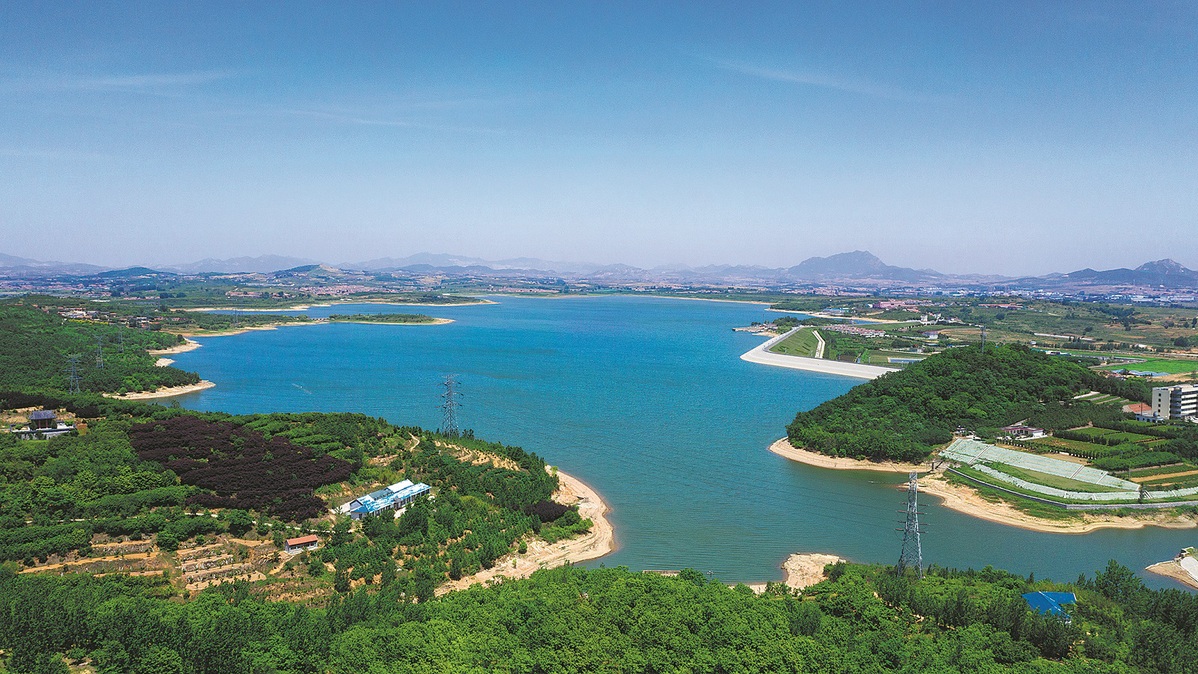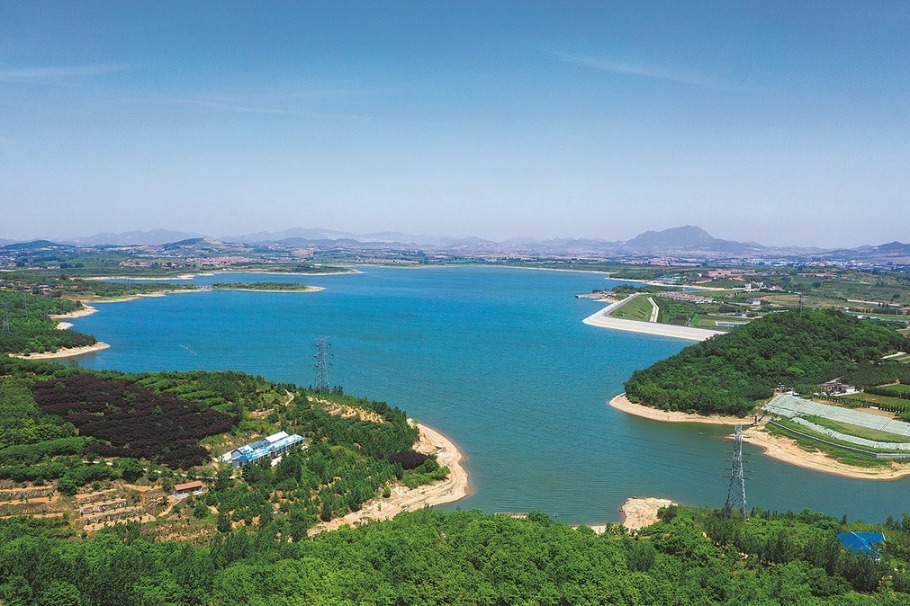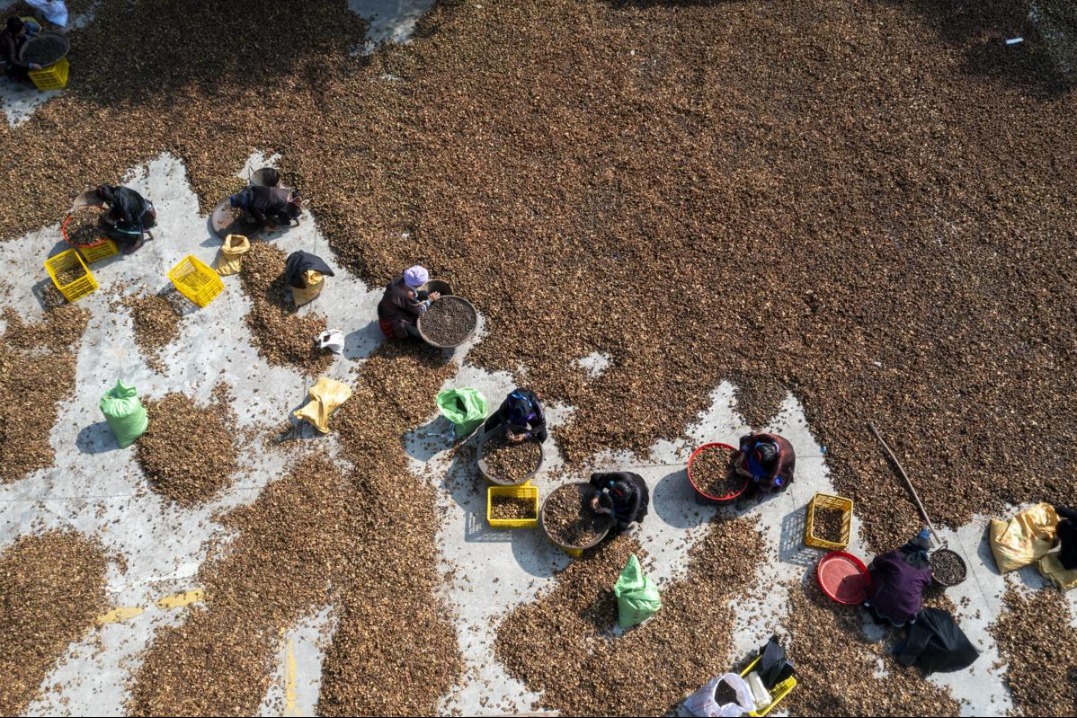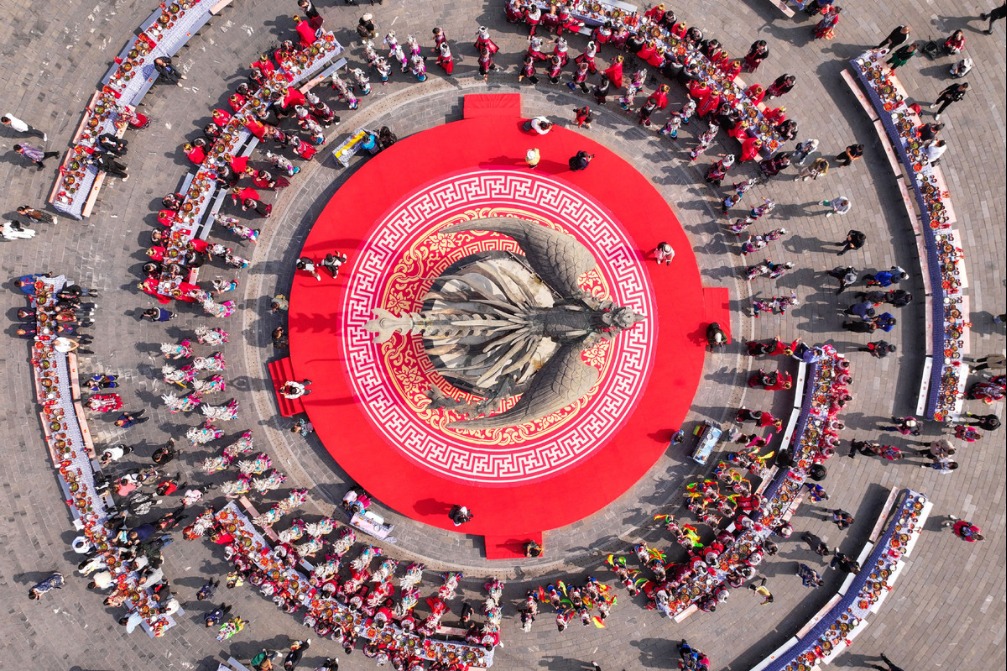Sustainable development mode addresses project funding shortages
Banks take pressure off authorities to pay for economic, green ventures






Addressing funding
As the country strives to address the underfunding of environmental conservation, a series of policies have been introduced in recent years to support and encourage the exploration and practice of EOD projects at both national and regional levels.
The Ministry of Ecology and Environment, the National Development and Reform Commission, the People's Bank of China and the National Financial Regulatory Administration released a guideline for promoting EOD in December.
Financial institutions will be encouraged to explore financial products and services that cater to the characteristics of EOD projects, the guideline said. They will also streamline the procedures to examine and approve loans for EOD projects and introduce preferential policies for them.
So far, provinces such as Anhui, Zhejiang, Fujian, Jiangsu and Shandong are conducting provincial-level EOD pilot projects.
In Jiangsu province, priority has been given to EOD projects with support such as "environmental protection loans" and "environmental protection guarantees", with financial rewards provided by the provincial government.
Provinces such as Anhui and Fujian have been inclined to support EOD projects through green finance, prioritizing the provision of necessary resources.
In Rizhao, Shandong province, the Rizhao Reservoir is surrounded by mountains, with a lakeside greenway that runs along the reservoir, creating a picturesque scene.
The beauty of this area can be attributed to the implementation and construction of an EOD project in the reservoir basin.
With a total investment of 2.39 billion yuan, the project focuses on the overall development of the reservoir basin.
The project aims to establish a distinctive industrial circle comprising an ecological aquaculture sector, an ecological tourism sector and a technology demonstration sector.
The project has set up a beneficial mechanism that subsidizes industrial profits to support ecological environmental inputs, paving the way for a green development approach that benefits production, livelihoods and the ecology.
The Rizhao Reservoir is a primary water source for local residents. In the past, issues such as agricultural pollution in the basin and upstream water influences led to damage to the reservoir's aquatic ecosystem, preventing stable water quality.
"The EOD mode extends the industrial chain, combines development and operates jointly to enhance the operational profits of related industries through ecological environmental governance," said Song Jun, director of the Rizhao bureau of ecology and environment.
"It feeds back the enhanced industrial value to ecological environmental governance inputs, achieving innovative project organization methods," he said.
The implementation of this EOD project aims to establish a distinctive eco-industrial zone featuring ecological agriculture, aquaculture and tourism.
"The project adopts an organic planting model that excludes pesticides, fertilizers, plastic film, herbicides, artificial hormones and genetically modified seeds," said Qin Lyu, deputy manager of Rizhao Water Affairs Group's Ecological Technology Development Co.
This comprehensive approach has enabled a transition from "beautiful ecological value" to "high-quality economic benefits", said Qin, adding that products such as hazelnuts, apples, tea, crucian carp, quinoa and wheat from the Rizhao Reservoir basin have all obtained national organic certification.
Through the development of ecological agriculture, Rizhao is achieving a win-win situation where ecological protection and the realization of ecological product values go hand in hand, Qin said.
The Rizhao Reservoir EOD project has been focused on creating a comprehensive governance demonstration area for mountains, waters, forests, fields, lakes and grasslands, and a strategic experimental area for rural vitalization, he added.
Zong from Dongbei University of Finance and Economics said that, from the perspective of the implementation of EOD projects nationwide, there are still aspects that need improvement. For example, in the implementation process there is a need to be cautious about tendencies toward homogenization.
Different regions should tailor their implementation plans according to their local ecological environment, industrial structure and economic foundation, integrating unique resources to build suitable ecological industrial chains, he said.
"Project advancement should proceed gradually, following a scientific planning approach and steady implementation to avoid resource wastage while enhancing resilience against risks, ensuring the sustainable development of the EOD mode," Zong said.
































